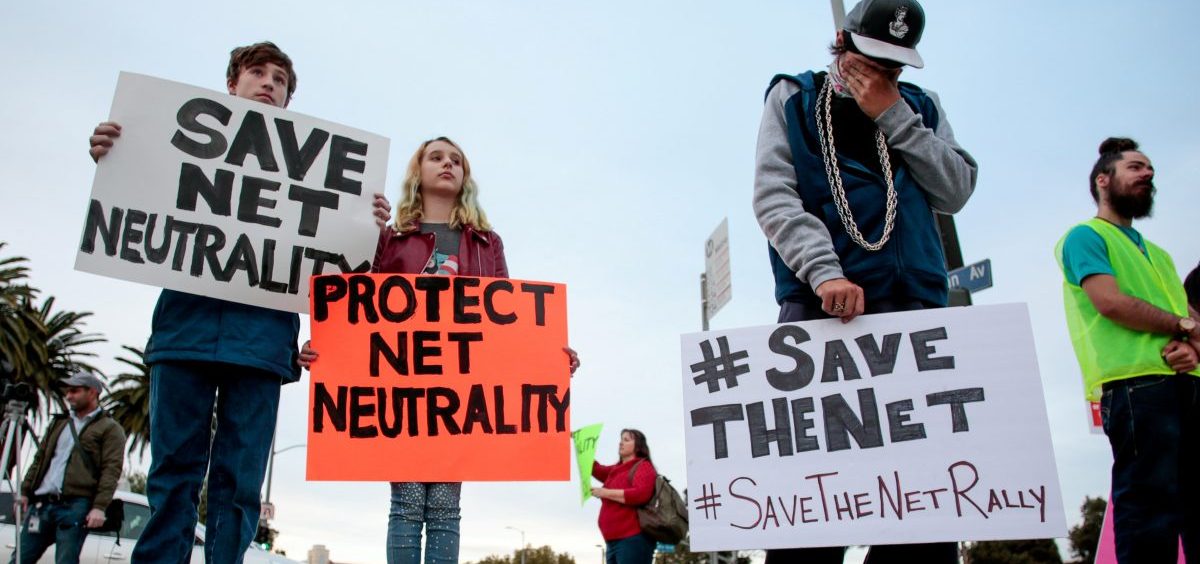News

Senate Set To Vote On Overturning FCC’s Net Neutrality Repeal
By: Bill Chappell | NPR
Posted on:
Senate Democrats are forcing a vote on a resolution Wednesday to nullify the Federal Communications Commission’s rollback of net neutrality, which is scheduled to take place next month. At least one Republican – Sen. Susan Collins – is likely to join Democrats in voting to overturn the FCC’s controversial decision.
The vote is unlikely to derail the FCC’s repeal of Obama-era rules that restrict Internet service providers’ ability to slow down or speed up users’ access to specific websites and apps. But the pending rule is also being challenged in federal court.
While the Senate’s resolution (formal name: S.J. Res. 52) will likely succeed, the measure would need House approval and President Trump’s signature before it could actually dismantle the FCC’s repeal of net neutrality.
The FCC’s new rule, the Restoring Internet Freedom Order, is slated to take effect on June 11.
The Senate is scheduled to consider the resolution of disapproval sometime after noon, according to the chamber’s official calendar.
Along with Collins, Senate Democrats can bring 50 votes in support of preserving net neutrality. That means Republicans can only count on 49 votes because of the absence of Sen. John McCain (who has not cast a vote since early December due to health concerns).
Today’s vote is being held with an eye toward the midterm elections. As NPR’s Alina Selyukh reports, “Democrats are putting a stake in the ground as the party that supports net neutrality. They’re hoping this gets people voting on Election Day.”
The Senate resolution was filed by Sen. Edward Markey, D-Mass., seeking to protect the Obama administration’s Open Internet Order of 2015, which officially established net neutrality. The FCC voted to overturn that rule last December.
The House version of the Congressional Review Act resolution that disapproves of the FCC rule was introduced by Rep. Mike Doyle, D-Pa., in February. It’s now languishing in the Subcommittee on Communications and Technology.
Critics of the FCC rollback say they’re worried about consumers being forced to pay more for less consistent or slower service. FCC Chairman Ajit Pai, part of the Republican majority, has said the Obama rule was “heavy-handed” and isn’t needed.
Earlier this year, a coalition of 23 attorneys general sued to block the rollback of net neutrality. Others have also filed suit, from the nonprofit Mozilla to the Free Press advocacy group. And in March, Washington state enacted its own net neutrality protections, in anticipation of the federal rule being revoked.
Outside of Washington, the fight to preserve net neutrality has proven to be bipartisan: The states that have sued to overturn the FCC order range from blue states like New York and Massachusetts to red states such as Mississippi and Kentucky.
President Trump and Republicans in Congress have used the Congressional Review Act to throw out Obama administration rules in more than a dozen cases since Trump was sworn in last year.
9(MDI4ODU1ODA1MDE0ODA3MTMyMDY2MTJiNQ000))

